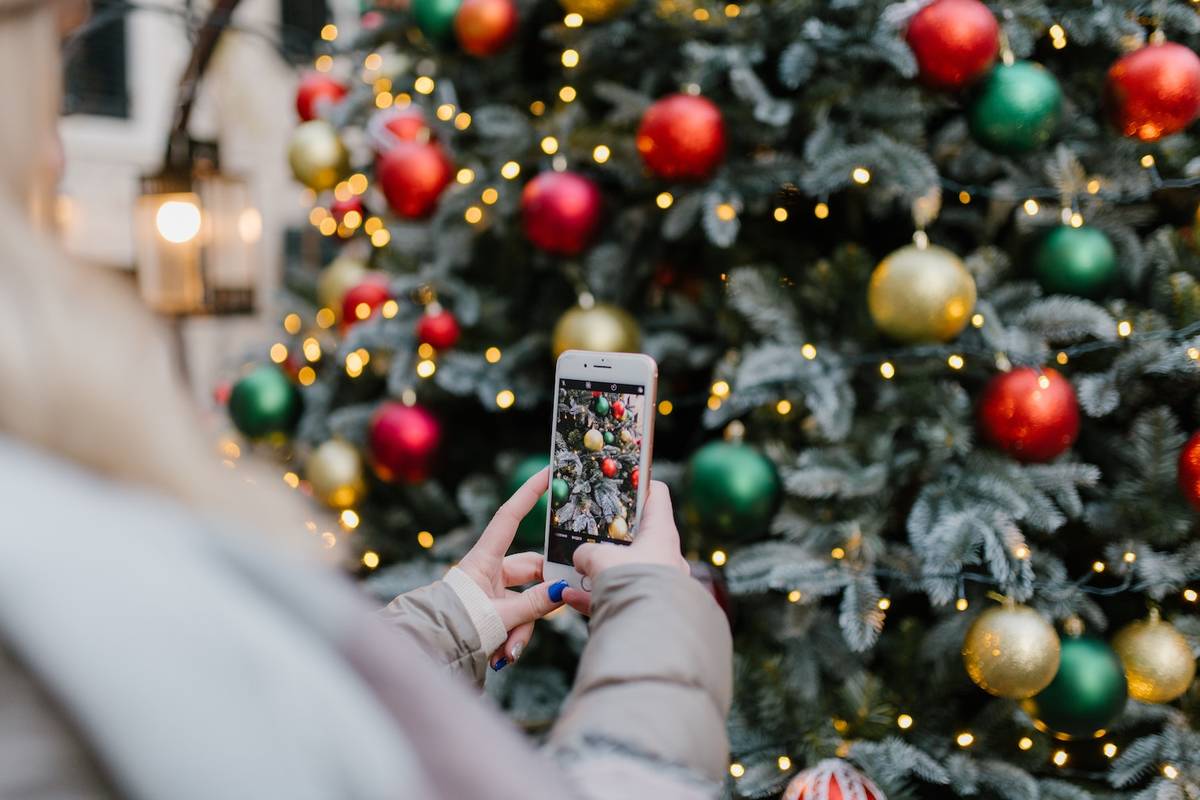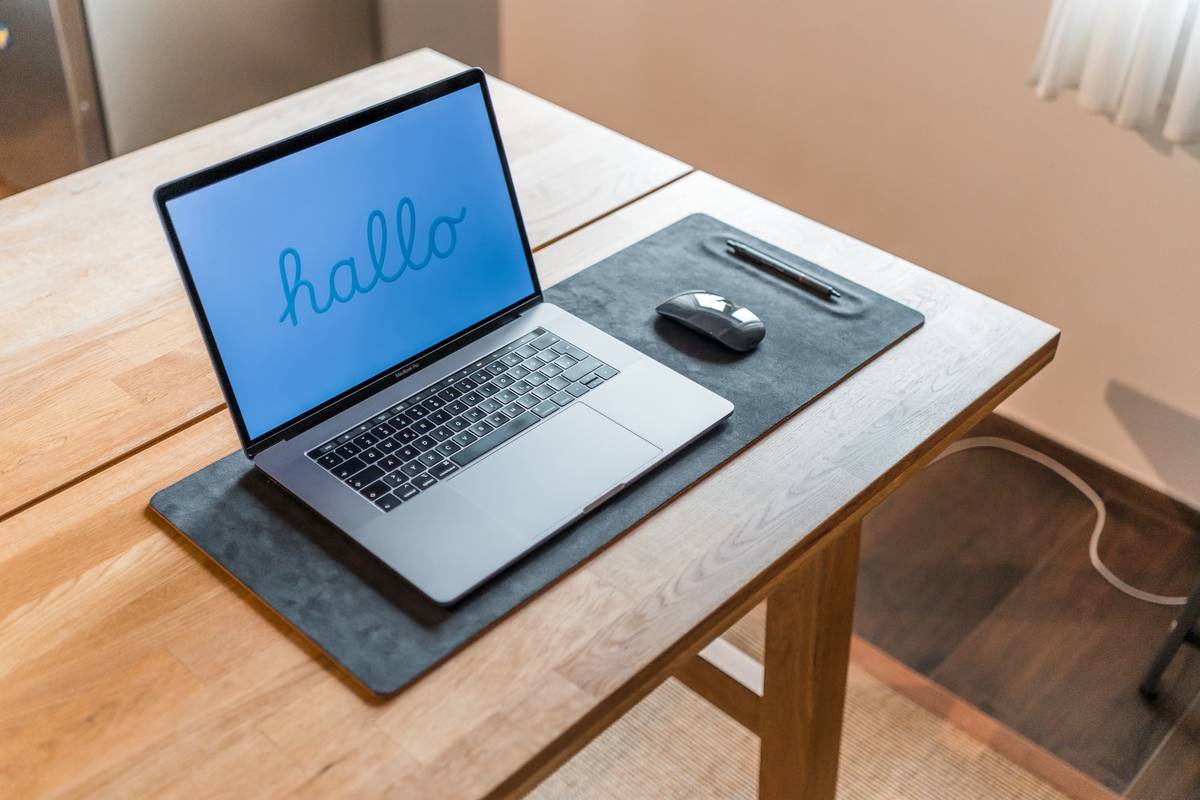It can be tricky to address a German speaker in the right way. Very often, you must decide carefully to be either formal or informal, especially with the latter. You wouldn’t want to offend anyone and start off on the wrong foot.
In this article we will show you some of the most common ways to interact with any German speaker you may meet on your travels, at school, or at work. Keep these phrases and words handy when traveling or speaking to someone online or over the phone, as they will make any German speaker you meet happy to engage in conversation with you.
“Was geht ab?” is the German equivalent for “What’s up?”, which is an informal way of greeting and asking about the other person’s wellbeing. Such casual ways of greeting someone should, however, be reserved for friends and family and not be used in the workplace. As a rule, always use the more formal way of speaking when in Germany, namely, with Sie (formal you) instead of du (familiar you). Reviewing the German alphabet may help with pronunciation.
Formality guide
How do you make sure to address someone in the appropriate way? Generally, you can rely on your gut feeling. Anyone of authority or an older age than yourself should be addressed formally. If you are unsure, always opt for the formal Sie first and let yourself be corrected. Any speaker will be happy to tell you that you can address them via du if you are on a first-name basis, or, as they like to say: duzen.
Initial greetings: How to say hello in German
To cover the basics of greeting someone in German, here is an overview of greetings:
| German | English equivalent | Literal translation | Context | Formality |
|---|---|---|---|---|
| Hallo! | Hello | Hello | Standard greeting | Neutral |
| Guten Morgen! | Good morning | Good morning | Mornings (until 10 or 11 a.m.) | Slightly formal |
| Guten Tag | Hello / Good day / Good afternoon | Good day | Until the sun goes down | Slightly formal |
| Guten Abend | Good evening | Good evening | After the sun goes down | Slightly formal |
Introductions and welcome
When meeting someone for the very first time, you’ll be better off knowing how to respond. You can opt to say “Freut Mich” (“Nice to meet you”) after the introduction, or you can always reply with “Ebenso” (literally “likewise”) in case they said it first.
| German | English equivalent | Literal translation | Context | Formality |
|---|---|---|---|---|
| Wie heißen Sie? | What is your name? | How are you called? | Introductions | Formal |
| Wie heißt du? | What’s your name? | How are you called? | Introductions | Informal |
| Es ist schön, Sie kennenzulernen. | Nice to meet you | It’s a pleasure to get to know you | Introductions | Formal |
| Freut mich | Nice to meet you | Much pleasure | Introductions | Informal |
| Willkommen | Welcome | Welcome | Introductions | Neutral |
| Herzlich willkommen! Genieße deinen Aufenthalt! | Welcome! Enjoy your stay! | Welcome! Enjoy your stay! | When someone is visiting your city | Informal |
Secondary greetings
When you have broken the ice with a greeting, asking how someone is doing is the polite thing to do and shows interest in the person you are conversing with. However, it is not uncommon to receive an honest response compared to most English-speaking countries, where the polite answer is always “I’m doing well.”
When asked how you are, the most common response is: “Danke, gut”, meaning “Thanks, I’m fine.” Usually, people will not respond with “Schlecht” (bad), even if they aren’t 100%. You can use something like “Es geht” (It’s alright) to reply in a more neutral tone and avoid giving too much detail about how you are feeling. This response does have a slightly negative connotation, however.
To greet a friend or acquaintance in German requires more than just the correct words. You should also know what to do when meeting a German. A firm handshake is always a respected method of greeting someone you are less familiar with. A successful greeting might be the start to a long-lasting friendship. Close friends may hug to greet, but kisses on the cheek are not very common. Always keep in mind that Germans like to communicate very directly and likely interpret gestures literally. Here is a good example: being asked if you would like food and saying no will result in them not giving you food, even if you just declined out of politeness. Germans will take your word and not ask a second time.
| German | English equivalent | Literal translation | Context | Formality |
|---|---|---|---|---|
| Wie geht’s? | How are you? | How are you? | How are you? After you have given an initial greeting | Neutral |
| Wie geht es dir heute? | How are you doing today? | How are you doing today? | How are you? After you have given an initial greeting with someone you see often | Neutral |
| Was geht ab? | What’s up? / What’s happening? | What’s going on? | Depending on the conversation, they may be asking what you are currently doing or just giving a general greeting | Informal |
| Wer bist du? | Who are you? | Who are you? | When meeting someone new and wanting to know their name. This can, however, be perceived as rude; rather, ask directly for their name. | Informal |
| Wo warst du? | Where have you been? | Where have you been? | Used with someone you haven’t seen in a while | Informal |
| Wo wohnst du? | Where do you live? | Where do you live? | Used with someone you have just met and are getting to know | Informal |
| Gern geschehen | You’re welcome | It was a pleasure | Used as response when someone is thanking you | Informal |

Photo by Andrea Piacquadio
Saying goodbye in German
Below are a few examples of expressions that can be used to notify that you are about to leave or saying goodbye to someone.
The most common way of saying goodbye is to say “Auf Wiedersehen”, which translates to “until I see you again.” It is more often used when you are not planning to see someone for a while and is a bit more formal than the simple “Tschüss.”
| German | English equivalent | Literal translation | Context | Formality |
|---|---|---|---|---|
| Auf Wiedersehen! | Goodbye | See you again | To someone you won’t see for a long time | Formal |
| Tschüss | Bye | Bye | When departing | Neutral |
| Bis bald | See you soon | See you soon | To someone you are planning on seeing soon | Neutral |
| Bis Morgen | See you tomorrow | Until tomorrow | Any time | Neutral |
| Bis nächste Woche | See you next week | Until next week | Any time | Neutral |
| Wir sehen uns am Montag | See you on Monday | See you on Monday | Any time | Neutral |
| Bis später | See you later | Until later | If you plan to see/connect with someone later the same day (otherwise use ‘Bis bald’) | Informal |
Answering the phone
Speaking on the phone can be nerve-wracking, as no body language will save you. Be prepared by learning these common phrases below:
| German | English equivalent | Literal translation | Context | Formality |
|---|---|---|---|---|
| Hallo | Hello | Hello | Greeting | Informal |
| Guten Tag | Hello | Good day / afternoon | Greeting | Formal |
| Ja, bitte? | Yes, please? | Yes, please? | When answering the phone | Neutral |
| Sag mir Bescheid | Let me know | Give me notice | In conversation when you need someone to get back to you to give you information | Neutral |
Writing letters or emails in German
Starting an e-mail or letter correctly can be tricky in German. It is recommended to use a comma ( , ) after an introductory greeting when writing a letter in German; however, the first word of the following sentence is written small (unless it is a noun).
| German | English equivalent | Literal translation | Context | Formality |
|---|---|---|---|---|
| Sehr geehrte Damen und Herren | Dear Sir/Madam/All, | Esteemed sir/madam/all | Formal letters | Formal |
| Sehr geehrter Herr…, /Sehr geehrte Frau…,/Liebe Frau…,/ Lieber Herr…, | Dear Mr./Mrs./Miss [last name], | Formal greeting | Formal letters | Formal |
| Sehr geehrter Herr …, | Dear Sir(/etc.), | Distinguished sir | Very formal letters | Formal |
| Verehrte Herren | Dear Sirs, | Distinguished sirs | Very formal letters | Formal |
| Hochachtungsvoll | Yours faithfully, | Attentive greetings from | Formal letters | Formal |
| Mit freundlichen Grüßen | Yours sincerely, | Attentive greetings from | Formal letters | Formal |
| Ich freue mich darauf, von Ihnen zu hören. | I look forward to hearing from you. | Waiting for your answer | Formal letters | Formal |
| Lieber [first name] | Dear [first name], | Esteemed [first name] | Less formal letters | Slightly formal |
| Hallo, [Vorname] | Hi/Hello [first name], | Loved one/ friend | Informal letters | Informal |
| Alles Gute | All my best | Best wishes | Informal letters | Informal |
| Herzliche Grüße | Warm wishes, | A warm greeting | Informal letters | Neutral |

Photo by Julia Volk
German holiday greetings and best wishes
Special events deserve a special greeting. It can be a nice gesture to wish someone well in celebration of a birthday or holiday. Keep in mind that these greetings can be used in an informal and formal way alike.
| German | English equivalent | Literal translation | Context | Formality |
|---|---|---|---|---|
| Alles Gute zum Geburtstag! | Happy birthday! | Happy birthday! | Birthday wishes | Neutral |
| Alles Gute! | All the best! | All the best! | Birthday wishes or general well-wishes | Neutral |
| Frohe Feiertage! | Happy holidays! | Happy holidays! | Mainly used for Christmas holidays | Neutral |
| Frohe Weihnachten! | Merry Christmas! | Happy Christmas! | Christmas | Neutral |
| Frohes neues Jahr! | Happy New Year! | Happy Year New! | Around New Year’s | Neutral |
To engage in conversation: General German phrases
What happens after a lovely greeting? You talk. Sometimes it is good to say a few polite things to keep the conversation going. Here are some general responses to give to a German speaker, along with some more casual or regional greetings.
| German | English equivalent | Literal translation | Context | Formality |
|---|---|---|---|---|
| Grüß dich! | Greetings! | Greetings to you | Casual way of greeting a friend | Informal |
| Grüß Gott! | May the Lord be with you | Greetings to God! | Used as a greeting in southern Germany or Austria | Neutral |
| Entschuldigen Sie bitte | Excuse me | Excuse me, please | Getting someone’s attention | Formal |
| Entschuldigung | Excuse me | Excuse me | Apologizing | Informal |
| Wie bitte? | Pardon me? | Pardon me? | To clarify confusion | Neutral |
| Danke | Thank you | Thank you | Thanking someone | Neutral |
| Bitte | Please | Please | Requesting | Neutral |
| (Es) Tut mit leid | I’m sorry | I’m sorry | Apologizing | Neutral |
| Wirklich? Echt? | Really? | Really? | Asking in confirmation | Neutral |
| Gerne! | Gladly | Happily | When assisting someone with something | Neutral |
| Mit Vergnügen! | Gladly | With pleasure | When assisting someone with something | Neutral |
| Sehr erfreut | Nice to meet you | It’s a pleasure | After meeting someone | Neutral |
| Freut mich. | Nice to meet you | It’s a pleasure | After meeting someone | Neutral |
| Mach’s gut | Take care | Take care | Upon departure | Neutral |
| Pass auf dich auf. | Take care | Take care of yourself | Upon departure | Neutral |
As with many languages, greetings depend on whom you are addressing and the context of the interaction. There are many ways to say hello, and some are more polite than others. Are you ready to get some small-talk going? Learn more German vocabulary and different lessons to get your German skills kick-started with Lingvist. Sign up for free and study at your own pace.


